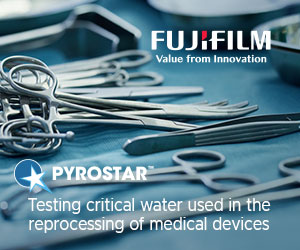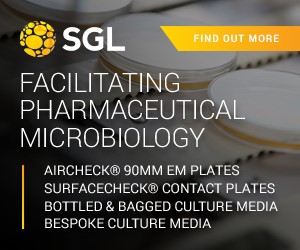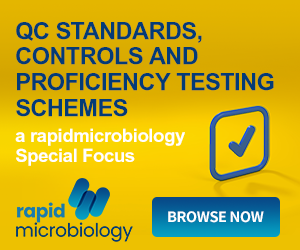Test for Detection of C. difficile Infection in just 20 Minutes
| | Thermo Scientific now offers a Clostridium difficile (C. difficile) test that provides results to healthcare professionals in just 20 minutes. The Remel Xpect™ C. difficile Toxin A/B Test, a valuable diagnostic tool for use in the rapid detection of Clostridium difficile infection (CDI), is extremely easy to use and provides accurate and reliable results. This speed and convenience enables healthcare professionals to quickly and decisively initiate appropriate patient care and infection control procedures. Clostridium difficile infection continues to be a major concern across Europe1,2,3. With each case costing between 5000 and 15,000 Euros, the financial impact of this pathogen on the European Union could exceed 3,000 million Euros every year4. In England, reporting of CDI in patients over 65 has been mandatory since 2004, and in patients more than two years of age it has been required in all acute NHS hospitals since 2007. |
| Although the number of cases reported in England declined in the last financial year (2008/2009)5, C. difficile was still involved in almost 6000 deaths6. For further information about the Xpect Clostridium difficile Toxin A/B Test and the range of ProSpecT tests, please contact Thermo Scientific using contact details at the top of this page or visit the Thermo Scientific website at www.oxoid.com.Elderly and immunocompromised patients who have recently received antibiotic therapy are most at risk of C. difficile-associated diarrhoea (CDAD), and infection can spread quickly throughout hospital wards and other healthcare institutions. The emergence of a highly virulent C. difficile strain (ribotype 027) in Canada, North America and Europe has contributed to multiple outbreaks of severe disease in hospitals and care homes1,2,3. Recent guidelines recommend that, when CDI is suspected, a stool sample should be tested for the presence of C. difficile toxins immediately7. Early diagnosis is recognized as one of several factors (including surveillance, education and infection control measures) that combine to prevent the spread of CDI1. The Xpect Clostridium difficile Toxin A/B Test allows the direct detection of both C. difficile toxins A and B in faecal samples. This is important since A-/B+ strains of C. difficile have been linked to CDAD8-11. Diluted sample is simply mixed with a conjugate buffer and added to the test cassette. Within 20 minutes, the result is clearly visible and easily interpreted. No specialized equipment or expertise is required. Xpect Clostridium difficile Toxin A/B test is suitable for use in laboratories of any size. This is particularly important since the significance of community-acquired CDI is increasingly recognized2. Rapid testing may help healthcare institutions limit the spread of disease. Michelle Holland, Thermo Scientific senior product manager comments, 'Early diagnosis of CDI is essential for the prevention and containment of outbreaks. The speed and convenience of Xpect Clostridium difficile Toxin A/B test allows more laboratories and healthcare facilities to test for this rapidly spreading pathogen immediately, giving them faster results and the opportunity to respond quickly and efficiently to a positive result.' In addition to the Xpect test for C. difficile toxins A and B, Thermo Scientific also offers the Remel ProSpecT™ C. difficile Toxin A/B Microplate Assay as part of a range of assays for the direct detection of enteric pathogens, including viruses and parasites. References: 1. European Centre for Disease Prevention and Control (ECDC), (2008) ECDC report on Clostridium difficile proposes careful review of infection control measures. Press release, 31st July 2008. 2. Kuijper EJ, Coignard B, Brazier J, et al (2007) Update of Clostridium difficile associated disease due to PCR Ribotype 027 in Europe. Eurosurveillance 12(6):pii=714 3. Kuijper EJ, Barbut F, Brazier J, et al (2008) Update of Clostridium difficile infection due to PCR Ribotype 027 in Europe, 2008. Eurosurveillance 13(31) 4. ECDC website, http://ecdc.europa.eu/en/healthtopics/Pages/Clostridium_Difficile_Infection.aspx 5. Health Protection Agency (HPA), (2009) Mandatory C. difficile infection (CDI) surveillance scheme, (2009) Mandatory C. difficile infection (CDI) surveillance scheme 6. Office of National Statistics (ONS), (2009) Deaths involving Clostridium difficile: England and Wales, 2008 www.ons.gov.uk 7. HPA and Department of Health (DH), (2008) Clostridium difficile infection: how to deal with the problem www.dh.gov.uk/publications 8. CCDR (1999) Report 25-07 9. Department of Health press release 2003/0222 (2003) (PLCM02003/4, PLCN02003/4) 10. Limaye, A.P., Turgeon, D.K., Cookson, B.T. and Fritche, T.R. (2000) J. Clin. Microbiol. 38(4): 1696-1697 11. van den Berg, R.J., Claas, E.C.J., Oyib, D.H. et al (2004) J. Clin. Microbiol. 42(3): 1035-1041 |
NOTE: This item is from our 'historic' database and may contain information which is not up to date.
Source : Thermo Scientific. View Company Information
Posted on March 16, 2010






